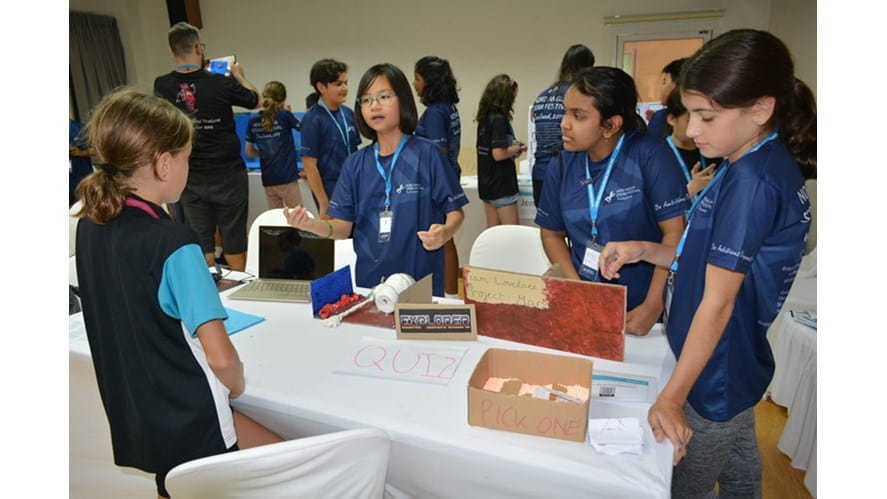We use cookies to improve your online experiences. To learn more and choose your cookies options, please refer to our cookie policy.
Admissions Are Now Open for 2025 - 2026!
Please contact our Admissions team for next steps.

This year, students from NAISAK attended the regional STEAM festival for the first time at Regents International School Pattaya at the start of this month. Six students from our school took part in the event: Abhay Sewraj, Amal George, Atharava Pathak, Nithil Srinivasan, Subabharath Kulandaivel and Suvarna Singh. Over the course of two days, the students attended talks and workshops and completed one of this year’s MIT challenges in teams of students from across the region.
The title of the challenge was Extreme Exposure and students were tasked with designing and creating a device that could create images of an environment that cannot normally be seen. Our students’ teams came up with some amazing products, such as cameras for volcanoes, tunnelling cameras and even probes to explore Mars! The students were able to make use of tools such as laser cutters, 3D printers, microcontrollers and cameras to build their prototypes.
Throughout the event, teams were awarded points for demonstrating skills such as collaboration, versatility and creativity. At the end of the event, Nithill’s team came in third place and Subabharath’s team came in first! All the students represented the school brilliantly during the event and they will be able to share their knowledge when NAISAK takes up the MIT challenge later this year.
This term the year 5 STEAM classes have been learning about the impacts of a growing world population and what our food requirements will be once we reach the year 2050. The students discovered that by 2050, it is predicted that the Earth’s population will be 10 billion and we will need to produce as much food as we have for the past 500 years. We asked the question, how will we be able to do this? How can we grow so much food? Where will the extra land and water come from? Can our planet sustain this?
As a result, all students undertook an independent research project to find out what sustainable farming techniques we could use to cater for this growing need for food. During this process, we discovered the farming technique of hydroponics. The children researched and designed their own systems. They junk modelled the system designs to ensure that they would fit together, with great success. This week our students are building a real hydroponic system on the school grounds. They are engaging in all areas of construction, testing and of course, planting our new garden vegetables.
Our students have identified a real 21st-century problem and have researched, designed and implemented a solution.
Edward Gent
Year 6 Teacher and Primary IPC and STEAM Co-ordinator